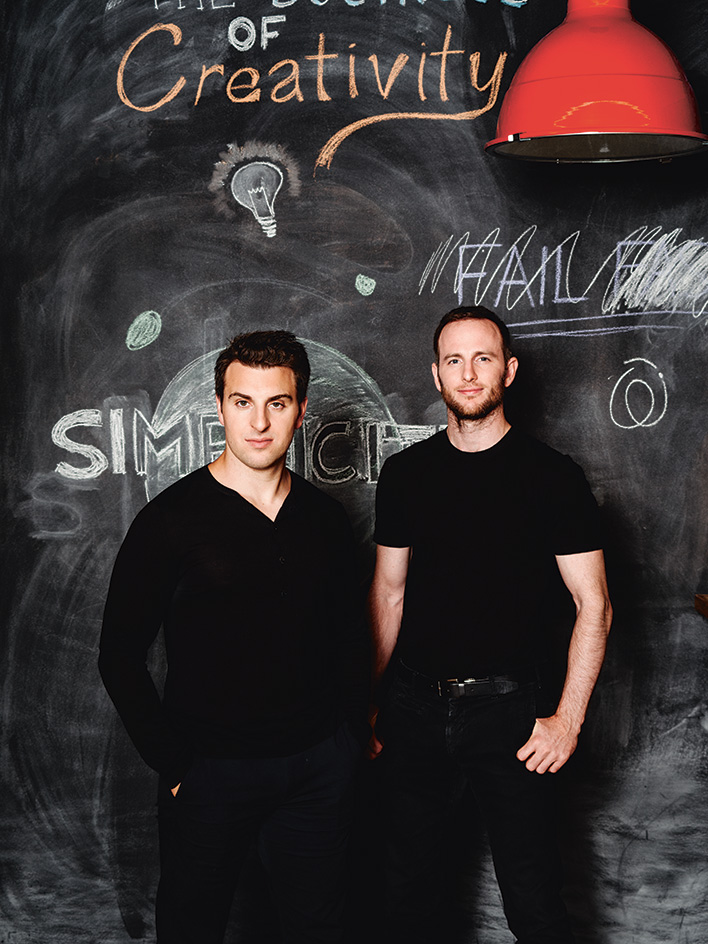
Receive our daily digest of inspiration, escapism and design stories from around the world direct to your inbox.
You are now subscribed
Your newsletter sign-up was successful
Want to add more newsletters?

Daily (Mon-Sun)
Daily Digest
Sign up for global news and reviews, a Wallpaper* take on architecture, design, art & culture, fashion & beauty, travel, tech, watches & jewellery and more.

Monthly, coming soon
The Rundown
A design-minded take on the world of style from Wallpaper* fashion features editor Jack Moss, from global runway shows to insider news and emerging trends.

Monthly, coming soon
The Design File
A closer look at the people and places shaping design, from inspiring interiors to exceptional products, in an expert edit by Wallpaper* global design director Hugo Macdonald.
Airbnb confounds for many reasons, though the most obvious one is that its success is based on a business model that ignores one of the first lessons we learn at our mother’s knee: don’t talk to strangers. We can only imagine what the first few investor meetings in 2008 must have been like.
And yet, fast forward nine years and the website – essentially a match-making service between home-owners and visitors looking for an alternative to hotel rooms – has already hosted 123 million nights. It’s also in the midst of seeking additional funding, valuing the company at $30bn – making it the second highest-valued start-up in the US behind Uber.
And like Uber, Airbnb has become a poster-child for the sharing economy, that nebulous but extremely valuable intersection between commerce and human connection. It has recast the idea of privacy, security and personal space. And all because Joe Gebbia and Brian Chesky, two graduates from the Rhode Island School of Design, found a way to take the components of trust between people who had never met, and design for it. ‘We didn’t come up with anything new,’ says Gebbia, chief product officer. ‘There were many websites like ours. Why did ours take off? Luck and timing played a part. The 2008 recession led people to consider new ways of earning supplemental income. But I believe the key difference was design.’
As Gebbia explains it, hospitality websites didn’t succeed because they were data driven. The humanity was missing. Through small but significant features such as quirky icons, intuitive booking forms and personal photos, ‘we designed an entire system that helped people reach this degree of trust. When we left the computers behind, we grew.’ And how. The company covers more than 34,000 cities. This summer, a million guests a night stayed in Airbnb accommodation.
Here, Brian Chesky, Airbnb’s CEO, recalls a lesson from Paul Graham, the founder of start-up incubator Y Combinator. ‘He told us it’s better to have a hundred customers that love you than to have a million that just sort of like you. If people love your product, they’ll tell other people about it.’
Not surprisingly, Gebbia and Chesky have already turned their creativity to other projects, though they remain opaque on the details. They’ve just launched Samara, an innovation and design studio, which brings together design and engineering experts to focus on ‘avant-garde and futuristic services’. Chesky adds: ‘Right now, we’re the Airbnb for homes. But what if we were the Airbnb for trips? What would that look like?’ As they say, stay tuned.
Airbnb is one of our 20 Game-Changers. Read about the other 19 here
As originally featured in the October 2016 issue of Wallpaper* (W*211)
INFORMATION
For more information, visit the Airbnb website
Photography: Jake Stangel
Receive our daily digest of inspiration, escapism and design stories from around the world direct to your inbox.
Daven Wu is the Singapore Editor at Wallpaper*. A former corporate lawyer, he has been covering Singapore and the neighbouring South-East Asian region since 1999, writing extensively about architecture, design, and travel for both the magazine and website. He is also the City Editor for the Phaidon Wallpaper* City Guide to Singapore.